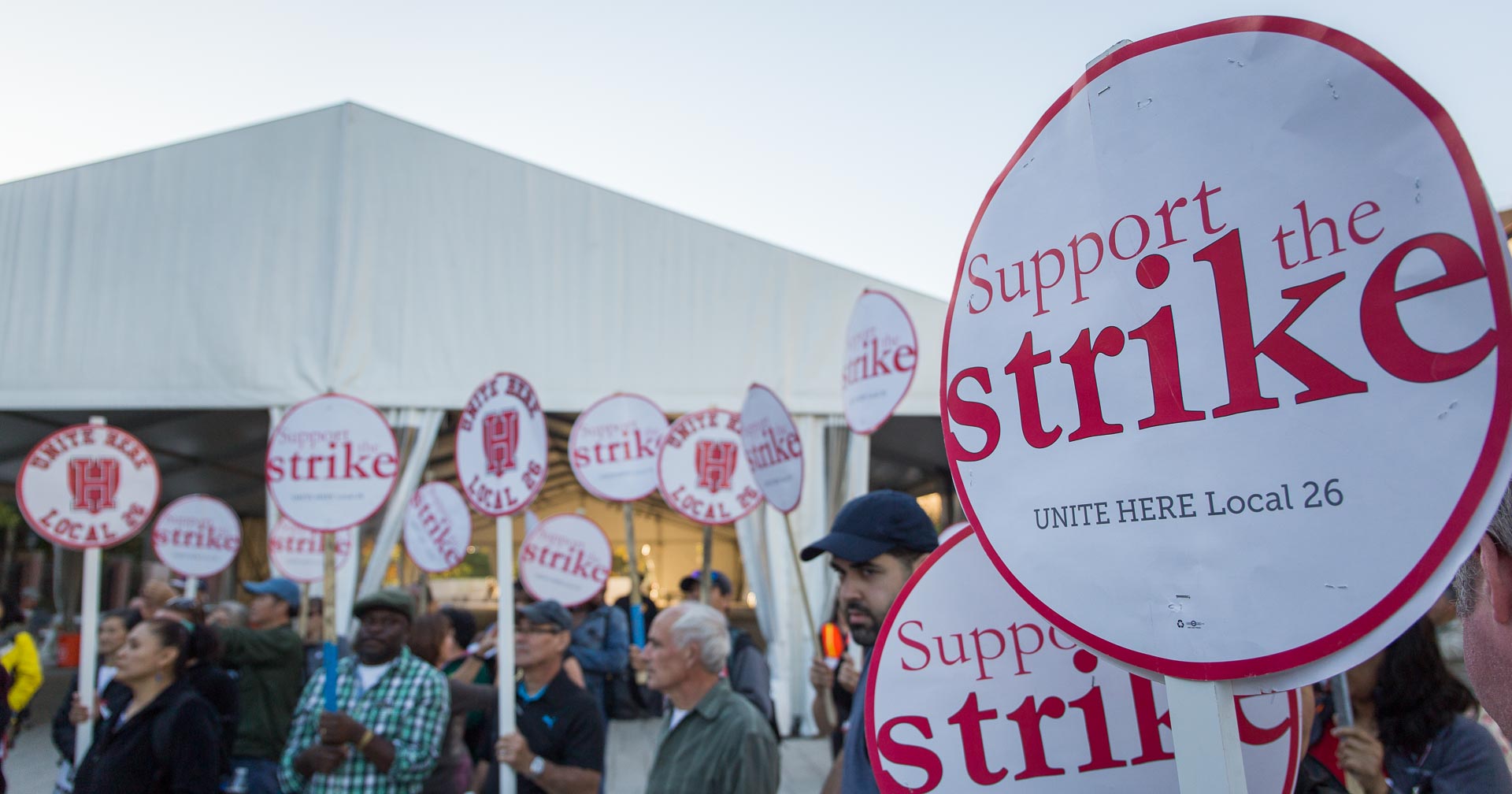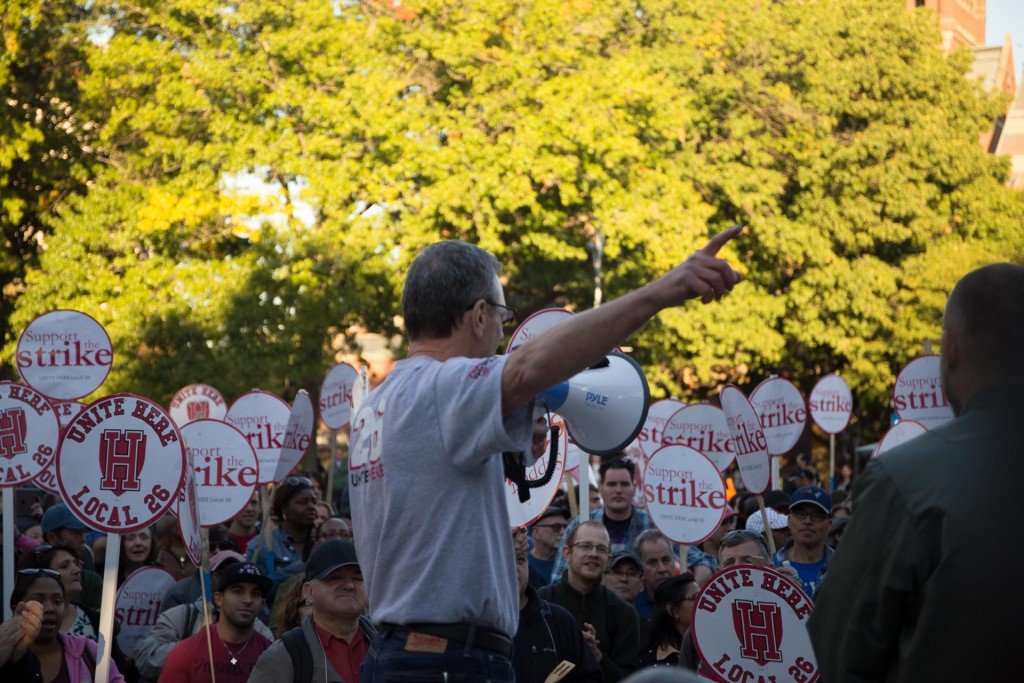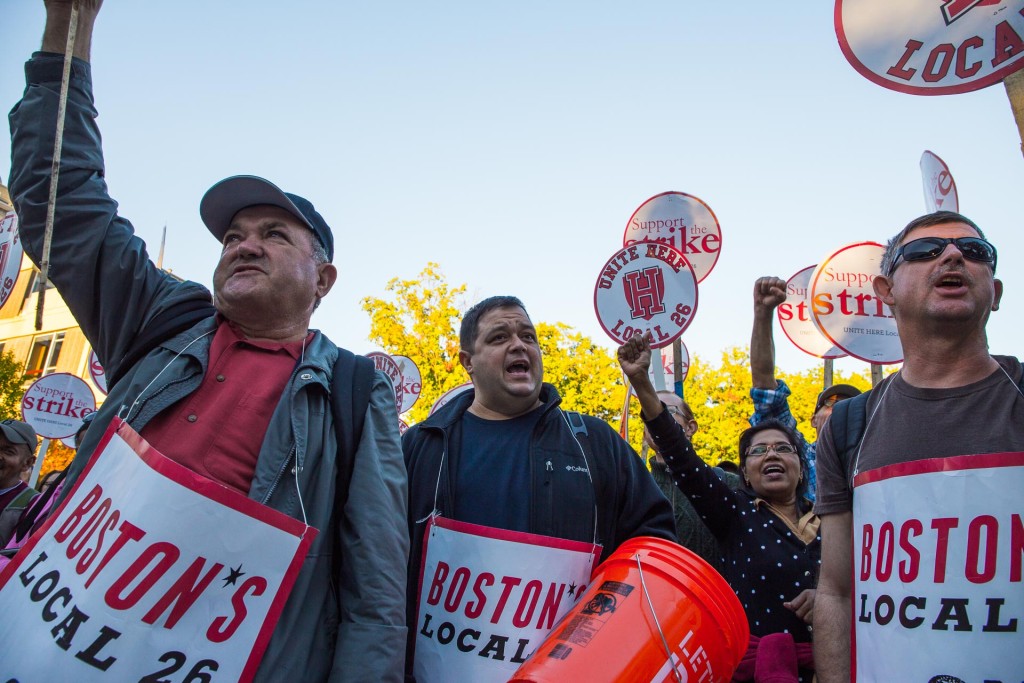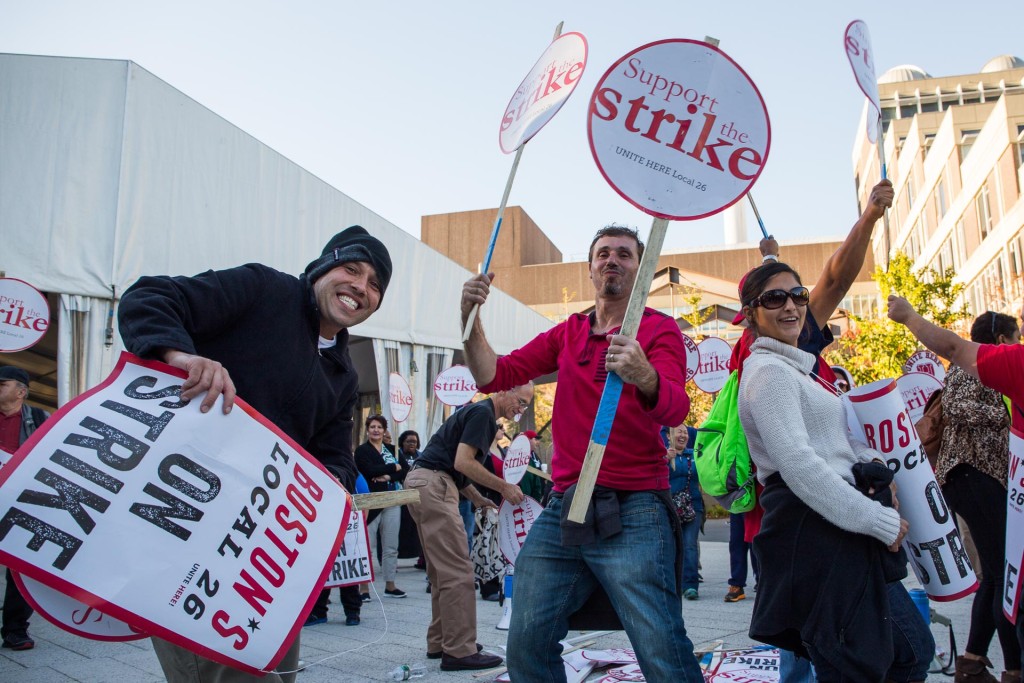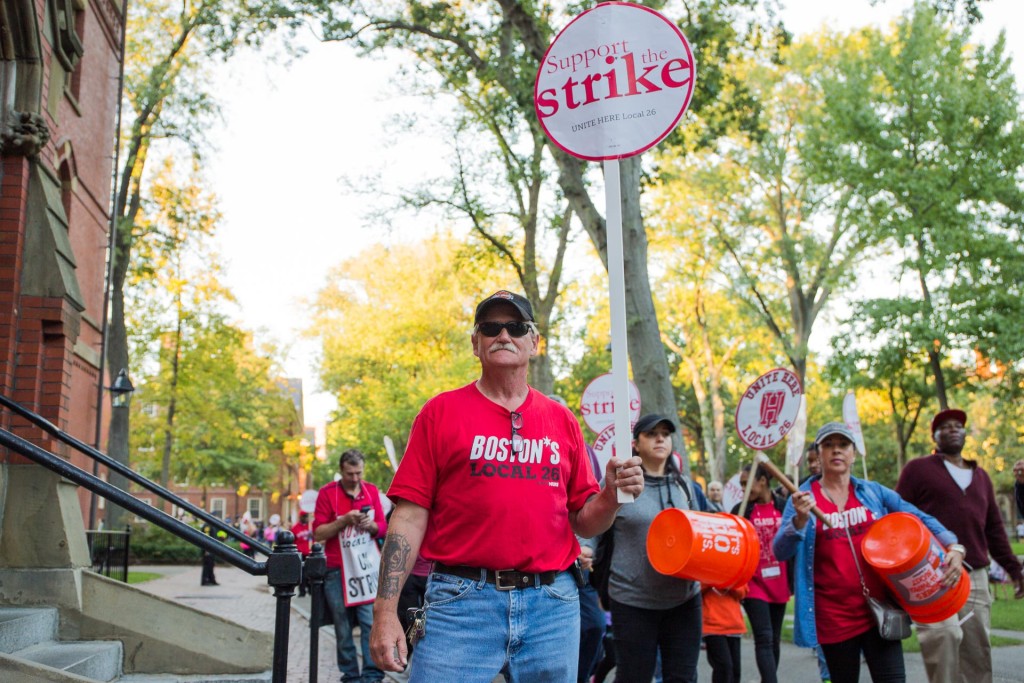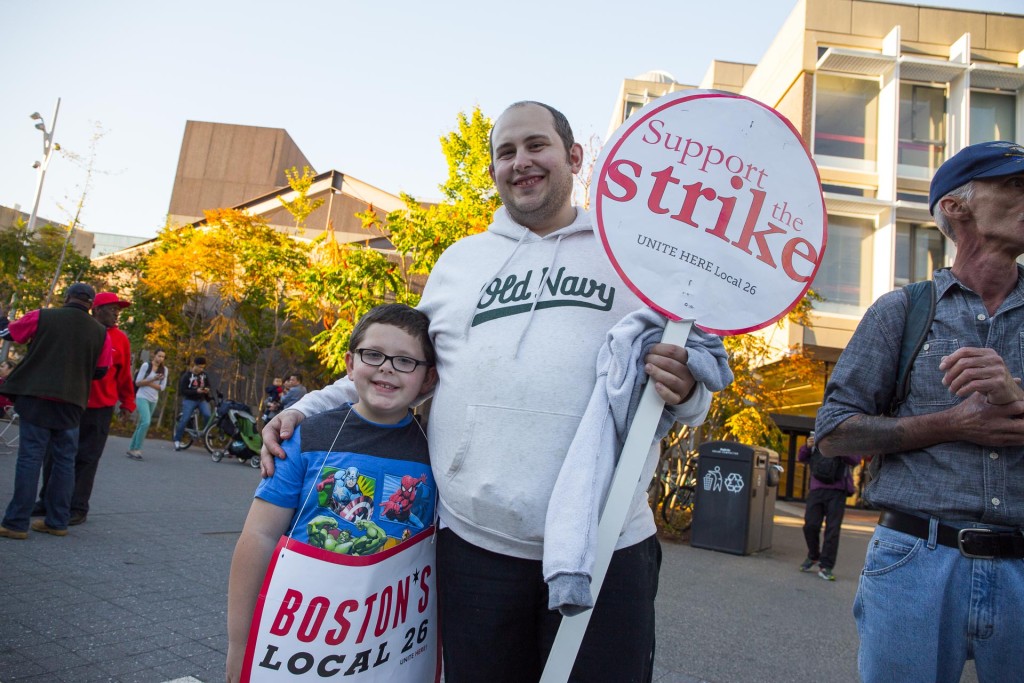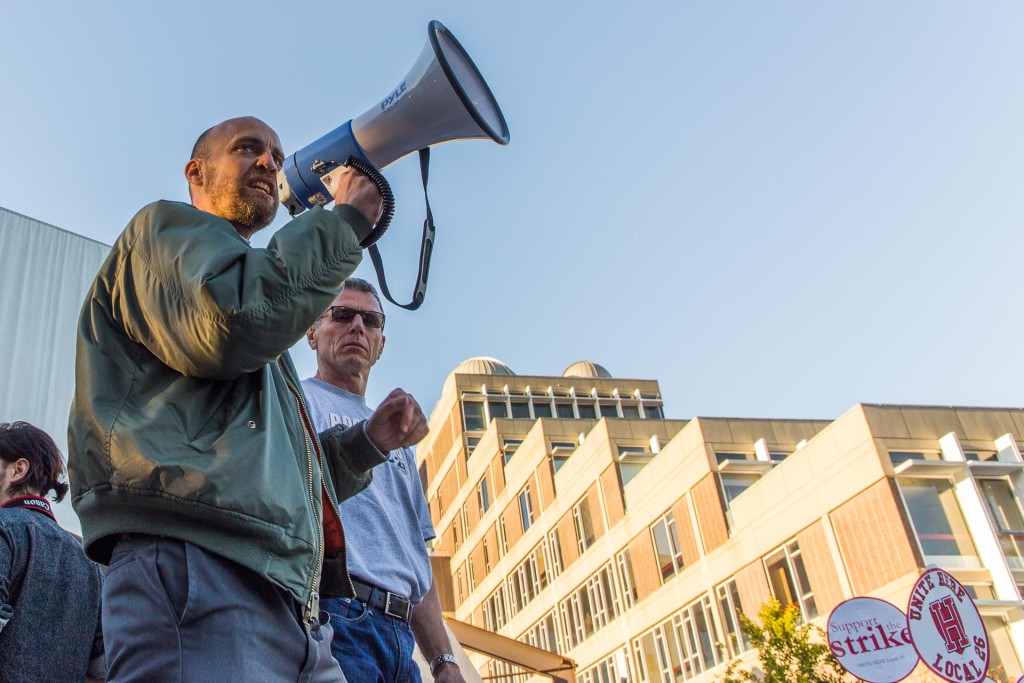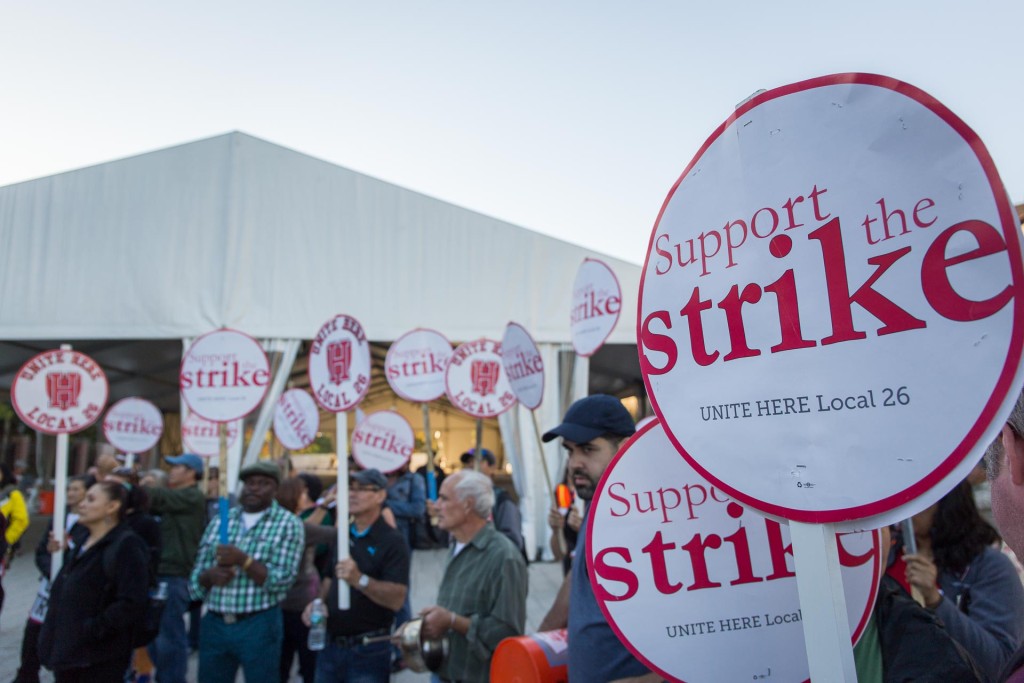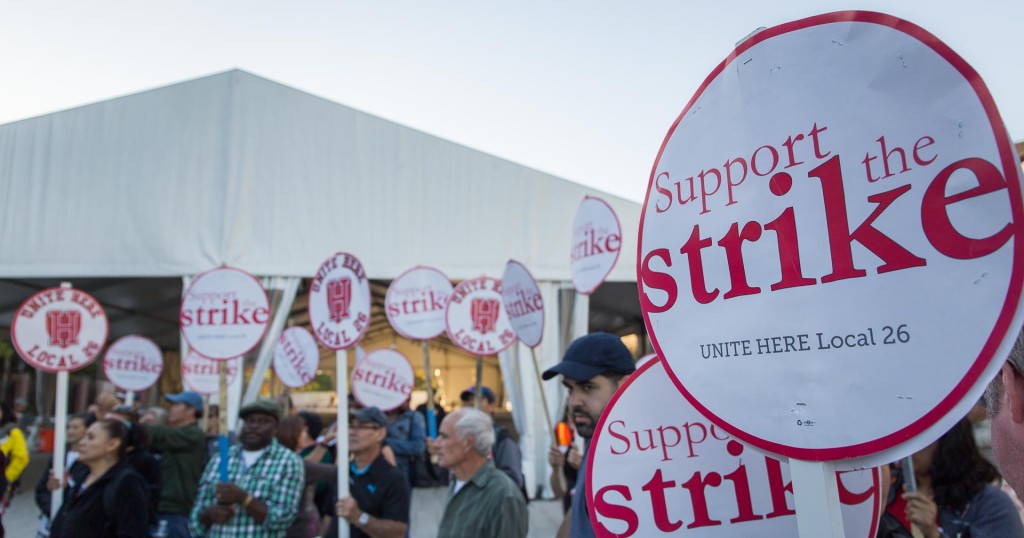For the second day, Harvard University Dining Workers were on strike, clamoring for higher pay, vacation work, and better health insurance benefits.
Negotiators for Local 26, the union that represents HUDS employees, met with two non-Harvard mediators on Thursday, and representatives for Local 26 expressed optimism that they would see their demands met.
“We’re winning,” Local 26 negotiator Michael Kramer said to a crowd of striking workers and supporters in a rally this afternoon. “They have been knocked back on their heels.”
Supporters and striking workers cheered his words.
“What do we want? Justice!” Kramer and the protestors shouted in a call-and-response.
“This is the richest university in the world. If anywhere the demands of a sustainable income and affordable healthcare makes sense, it’s here,” Kramer said in an interview.
Hundreds of Harvard students, faculty, and staff joined the striking workers, who appreciated the support of the community.
“The community is great,” said Shawn Higgins, a catering services employee who has worked at Harvard for 28 years. “They’re our backbone. We take care of them. They take care of us. We’re extended families.”
The workers emphasized that the core issues of the strike were the availability of vacation work and affordable health care. Currently, most HUDS employees are laid off during the summer, and workers said that finding consistent but temporary summer work was difficult, leaving them with a paying job for only part of the year.
“It’s really hard to pay your bills when you’re only working eight months out of the year,” said Scott Sillari, an assistant cook at Annenberg Hall. “That affects whether I can buy my son school clothes and school supplies.”
Kramer said he didn’t understand why Harvard can’t find a way to put HUDS employees to work during the summer.
“This is a place that solves the world’s problems, right? People come here to study big problems in the world and figure out solutions. It seems unreasonable to me that at that same university, we can’t figure out how to give the food service workers a sustainable annual income,” he said.
Kramer likewise expressed bewilderment at Harvard’s proposed health plan, which raises deductibles, employee contributions, and co-pays.
“It doesn’t make sense in terms of how health care should be done,” he said. “So I have no idea why they are so dead-set on it. I just know that it doesn’t work for our members, and that they are saying, ‘no, it is unacceptable.’”
Striking workers agreed with Kramer’s assessment of Harvard’s proposed insurance plan.
“I’m about ready to retire and they want to take my medical benefits?” Higgins said. “After 28 years, this is your thanks?”
Organized labor from across the Boston area also expressed support for the strike. Local 103 of the International Brotherhood of Electrical Workers, which represents telecommunications workers, has refused to work on Harvard properties. Likewise, Local 25 of the Teamsters Union is stopping deliveries to Harvard.
Kramer said he wasn’t sure how long the strike will last, but both he and striking workers seemed prepared to strike for a long time if necessary.
“This is where we stand,” Higgins said. “We’re not gonna move. We’re gonna take it to any level we need to take it to.”
On Friday, Local 26 representatives will meet again with Harvard to try again to reach a deal.
“Our demands are just, we are not going to compromise, and we just need to keep pushing until we knock them over,” Kramer said.


